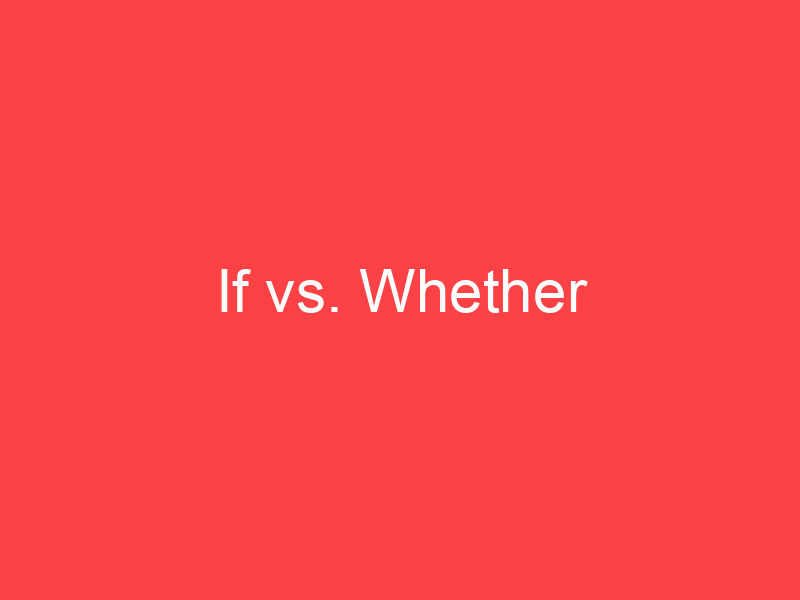-
Whether
An interrogative word or question word is a function word used to ask a question, such as what, when, where, who, whom, why, and how. They are sometimes called wh-words, because in English most of them start with wh- (compare Five Ws). They may be used in both direct questions (Where is he going?) and in indirect questions (I wonder where he is going). In English and various other languages the same forms are also used as relative pronouns in certain relative clauses (The country where he was born) and certain adverb clauses (I go where he goes).
A particular type of interrogative word is the interrogative particle, which serves to convert a statement into a yes–no question, without having any other meaning. Examples include est-ce que in French, ли li in Russian, czy in Polish, ĉu in Esperanto, কি ki in Bengali, 吗 ma in Chinese, mı/mi in Turkish, pa in Ladin, か ka in Japanese and ko/kö in Finnish. (The English word whether has a similar function but only in indirect questions; and Multicultural London English may use “innit”, even in the absence of the pronoun “it”.) Such particles contrast with other interrogative words, which form what are called wh-questions rather than yes–no questions.
For more information about the grammatical rules for forming questions in various languages, see Interrogative.
-
If (conjunction)
Supposing that, assuming that, in the circumstances that; used to introduce a condition or choice.
“If it rains, I shall get wet.”
-
If (conjunction)
In the event that a statement is true (a programming statement that acts in a similar manner).
“If A, then B, else C.”
-
If (conjunction)
Supposing that; used with past or past perfect subjunctive indicating that the condition is closed.
“I would prefer it if you took your shoes off.”
“I would be unhappy if you had not talked with me yesterday.”
“If I were you, I wouldn’t go there alone.”
-
If (conjunction)
Supposing that; given that; supposing it is the case that.
“If that’s true, we had better get moving!”
-
If (conjunction)
Although; used to introduce a concession.
“He was a great friend, if a little stingy at the bar.”
-
If (conjunction)
Whether; used to introduce a noun clause, an indirect question, that functions as the direct object of certain verbs.
“I don’t know if I want to go or not.”
-
If (conjunction)
Even if; even in the circumstances that.
-
If (conjunction)
Introducing a relevance conditional.
“I have leftover cake if you want some.”
-
If (noun)
An uncertainty, possibility, condition, doubt etc.
-
Whether (determiner)
Which of two.
-
Whether (pronoun)
Which of two. 11th-19th c.
-
Whether (conjunction)
Introducing a direct interrogative question (often with correlative or) which indicates doubt between alternatives.
-
Whether (conjunction)
Used to introduce an indirect interrogative question that consists of multiple alternative possibilities (usually with correlative or).
“He chose the correct answer, but I don’t know whether it was by luck or by skill.”
-
Whether (conjunction)
Without a correlative, used to introduce a simple indirect question.
“Do you know whether he’s coming?”
-
Whether (conjunction)
Used to introduce a disjunctive adverbial clause which qualifies the main clause of the sentence (with correlative or).
“He’s coming, whether you like it or not.”

